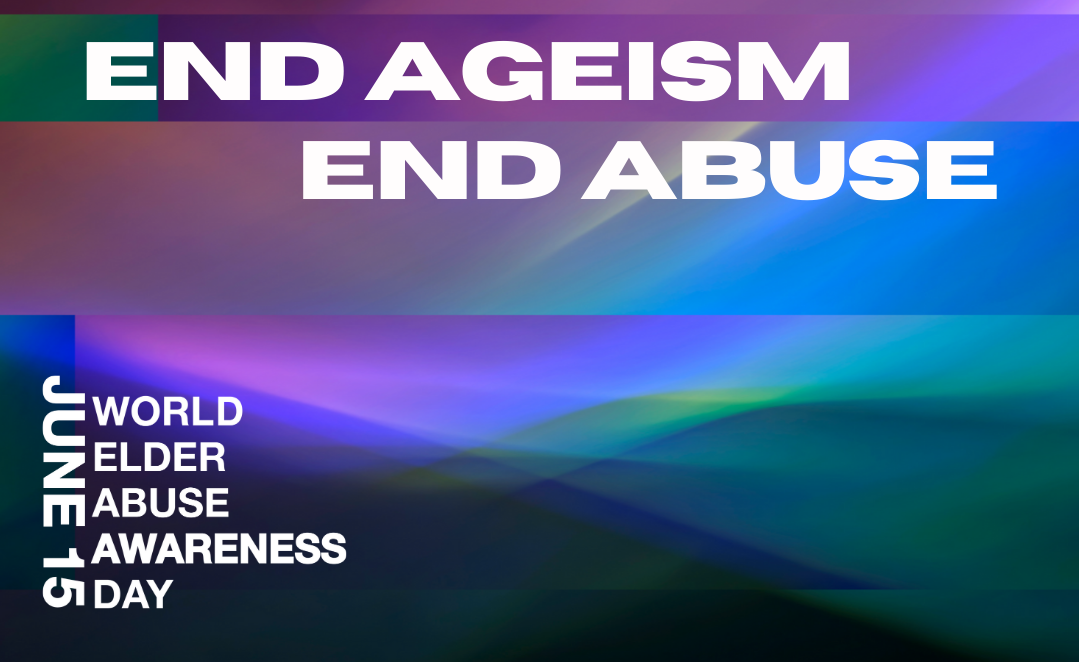UN Elder Abuse Day – Raising Awareness
UN Elder Abuse Day on June 15, 2023 is an opportunity to raise awareness about this increasing phenomenon. The theme is: “Closing the Circle: Addressing Gender-Based Violence (GBV) in Older Age Policy, Law and Evidence-based Responses”.
What is Elder Abuse?
According to World Health Organization, elder abuse can be defined as “a single, or repeated act, or lack of appropriate action, occurring within any relationship, where there is an expectation of trust, which causes harm or distress to an older person.” Elder abuse can take various forms such as physical, psychological or emotional, sexual and financial abuse. It can also be the result of intentional or unintentional neglect.
In many parts of the world, elder abuse occurs with little recognition or response. Until recently, this serious social problem was hidden from the public view and considered mostly a private matter. Even today, elder abuse continues to be a taboo, mostly underestimated and ignored by societies across the world. Evidence is accumulating, however, to indicate that elder abuse is an important public health and societal problem.
Scope of the Problem
A 2017 study based on the best available evidence from 52 studies in 28 countries from diverse regions, including 12 low- and middle-income countries, estimated that, over the past year, 15.7% of people aged 60 years and older were subjected to some form of abuse. This is likely to be an underestimation, as only 1 in 24 cases of elder abuse is reported, in part because older people are often afraid to report cases of abuse to family, friends, or to the authorities. Consequently, any prevalence rates are likely to be underestimated.
Although rigorous data are limited, the study provides pooled prevalence estimates of number of older people affected by different types of abuse:
- psychological abuse: 11.6%
- financial abuse: 6.8%
- neglect: 4.2%
- physical abuse: 2.6%
- sexual abuse: 0.9%
Globally, the number of cases of elder abuse is projected to increase as many countries have rapidly ageing populations whose needs may not be fully met due to resource constraints. It is predicted that by the year 2050, the global population of people aged 60 years and older will more than double, from 900 million in 2015 to about 2 billion, with the vast majority of older people living in low- and middle-income countries. If the proportion of elder abuse victims remains constant, the number of victims will increase rapidly due to population ageing, growing to 320 million victims by 2050.
Tackling abuse of older people: Five priorities for the UN Decade of Healthy Ageing 2021–2030
This is a United Nations resource outlining key priorities to prevent and respond to abuse of older persons and, hence, contribute to improving their health, well-being and dignity. This year, the commemoration will provide an update on the implementation of the priorities.
What can we do?
Judy Lear, who is ICJW’s representative on the NGO Committee on Ageing and the NGO Sub Committee on Older Women at the United Nations in New York, offers the following suggestions.
Here are ways you can act:
• Call an elder person and just listen
• Participate in an action like a march or demonstration that day
• Talk to friends and raise personal awareness.
It seems that, for the UN, the age of 65 classifies one as an “elder”. For many of us, that is still a youngster!
Join the Online Event
On June 15th at 1.15 EST, the NGO Committee on Ageing, NY, will have an online program that anyone can join. An expert panel will present overall trends of violence against older persons, highlight gaps and challenges of implementing the objectives in Madrid International Plan of Action on Ageing. Expert panelists will also present five priorities to combat violence against older persons in the Decade of Healthy Ageing (2021-2030).
